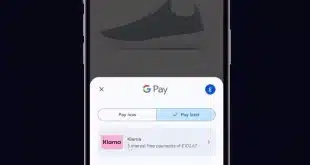A federal judge is scheduled to hear arguments Thursday on whether a proposed settlement worth up to $6.24 billion in damages to card-accepting merchants is fair.
The hearing in U.S. District Court in Brooklyn, N.Y., is expected to draw a roomful of lawyers for defendants Visa Inc., Mastercard Inc. and some of the nation’s biggest card-issuing banks, as well as merchant plaintiffs. The court gave preliminary approval last January to the proposed settlement in the 14-year-old MDL 1720 case, setting the stage for this week’s hearing.
U.S. District Judge Margo K. Brodie could rule from the bench, but Patrick J. Coughlin, one of the plaintiffs’ attorneys, believes it’s more likely she will reveal her fairness decision some time later in a written ruling. If Brodie determines the settlement is indeed fair, the gears could start turning to actually distribute damages to a class of merchants whose number Coughlin estimates at more than 12 million. Coughlin, a San Diego based attorney for Robbins Geller Rudman & Dowd LLP, expects the payout process will take some time.
“It would probably take a little longer to sort the claims out to make sure we have everybody can be in the class that wants to be in the class,” Coughlin tells Digital Transactions News.

The amount to be distributed to merchants in the damages class ranges from a minimum of $5.54 billion to $6.24 billion. Merchants that accepted cards at any time between Jan. 1, 2004, and Jan. 25 of this year are eligible. How much an individual merchant will receive will be determined on a pro-rata basis taking into account the merchant’s length of time accepting cards and card volume, according to Coughlin.
Merchants were given the choice of opting out of damages claims, and a number of mostly large and medium-sized firms, including Walmart Inc. and Target Corp., had done so by a July deadline. Mastercard reported last week in a regulatory filing that merchants representing slightly more than 25% of the interchange volume generated by the damages class had opted out.
A Visa spokesperson did not immediately have a corresponding figure. Coughlin, though, expects Visa’s opt-out rate to be nearly identical to Mastercard’s. The 25% threshold is important because an opt-out rate above that gives the defendants the right to terminate the settlement.
Coughlin doubts that will happen, however. “We’ve been in contact with them,” he says.
The number of opt-outs also will reduce the total settlement pay-out, but it will go no lower than $5.54 billion.
Thursday’s hearing will be one of the most important among the countless other hearings in a case dating back to 2005, when a handful of merchants first sued Visa, Mastercard, and a number of the nation’s biggest financial institutions alleging the networks and banks violated federal antitrust law in setting credit card interchange rates and card-acceptance terms. Over the years, similar challenges from more merchants were consolidated into the giant case dubbed MDL (for multi-district litigation) 1720.
A federal appellate court in 2016 overturned a 2012 settlement in the case originally valued at $7.25 billion, citing inadequate representation for some merchants. That action resulted in the case going back to the Brooklyn court and the merchant plaintiffs being divided into two groups: one for those seeking monetary damages, and the other for merchants opting out of damages but still seeking so-called injunctive relief from the network’s acceptance rules, especially their honor-all-cards and anti-steering rules.
Both Visa and Mastercard have reported in regulatory filings that they are conducting settlement talks with injunctive-relief merchants.





